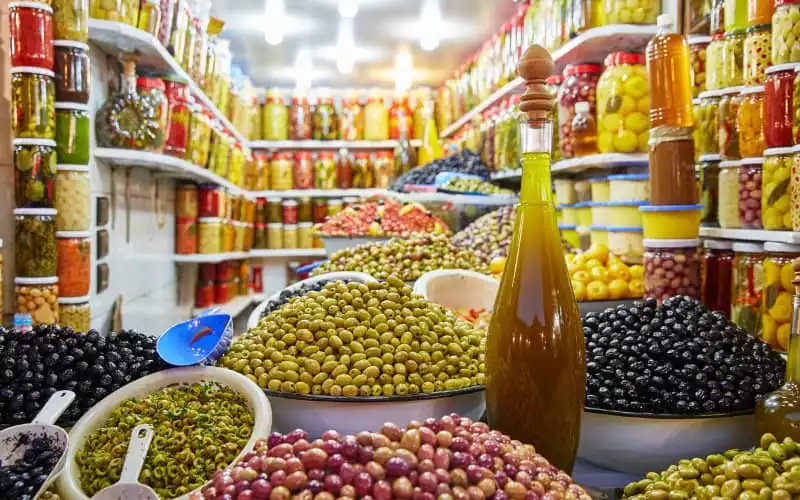Morocco’s Olive Oil Exports Surge Despite Production Slump: Minister Explains Paradox

Questioned by two deputies from the Party of Progress and Socialism (PPS) group, Ahmed Bouari, Minister of Agriculture, Maritime Fisheries, Rural Development and Water and Forests, explains the "strange" increase in Morocco’s exports of olives and olive oil despite the drop in production.
"The export of quantities of olive oil to foreign markets is due to the fact that a significant portion of the quantities of olive oil exported last year was not intended for direct consumption, due to its high acidity level (olive pomace oil)," explains Ahmed Bouari in response to two parliamentary questions from deputy Ahmed Abbadi and deputy Loubna Sghiri from the Party of Progress and Socialism group. Furthermore, "quantities of extra virgin olive oil that are not in high demand by Moroccan consumers" have been exported. According to his explanations, many Moroccan olive oil producers and exporters conclude advance contracts with foreign importers, "which makes it difficult to suddenly stop or reduce exports without compromising the commercial contracts concluded between economic actors."
During the current 2024-2025 agricultural season, "olive production reached 950,000 tons, thus recording a decrease of 11% compared to the 2023-2024 agricultural season, which had recorded a production of around 1.05 million tons, and 33% compared to the average production of the last three seasons. Olive production is concentrated in the Fès-Meknès, Oriental and Tanger-Tétouan-Al Hoceïma regions, which account for 67% of national production," Bouari further specifies. He justifies this decline in national olive production by the combined effect of several factors, including "the persistence of drought, the rainfall deficit exceeding 50% in some regions and the heat wave that coincided with the flowering period of olive groves, which had a negative impact on the harvest, as well as the alternating phenomenon characteristic of the olive tree."
"In order to ensure the normal and regular supply of the domestic market with olive oil and to stabilize prices at their usual levels," significant measures have been taken to offset the deficit recorded in production by importing and regulating the export of this product. According to Bouari, his department has taken, during the past 2023-2024 agricultural season, new measures for the marketing of olive products: to subject the export of fresh or refrigerated olives, processed olives, olive oil and olive pomace oil to prior authorization. During the current 2024-2025 agricultural season, "the ministry has taken the necessary measures to ensure better supply of the domestic market with olive oil and stabilize its prices so that they remain at reasonable levels affordable to the Moroccan consumer," the minister said.
He cites, among other things, the exemption from customs duties on imports of high-quality olive oil (extra virgin olive oil and virgin olive oil), the facilitation of the export of olive pomace oil and lampante oil, as well as the strengthening of quality control of imported olive oil. Furthermore, Bouari stressed that "the olive production sector is of strategic importance in the national agricultural fabric due to its position as the main arboriculture sector, covering a cultivated area at the national level of 1.23 million hectares during the 2024-2025 agricultural season."
Related Articles
-

Budget Traveler’s Dream: £30 Flight Unlocks Moroccan Luxury for British YouTuber
14 September 2025
-

Morocco’s Tax Evasion Loophole: Adouls Hampered in Real Estate Tax Collection
13 September 2025
-

Altice’s $24 Billion Debt Crisis: Patrick Drahi Eyes Sale of Moroccan Call Center Giant Intelcia
13 September 2025
-

Moroccan Dirham Surges Against Dollar as Official Reserves Hit 414.8 Billion
13 September 2025
-

Moroccan Entrepreneur Turns LA Pools into $70K Monthly Gold Mine
12 September 2025